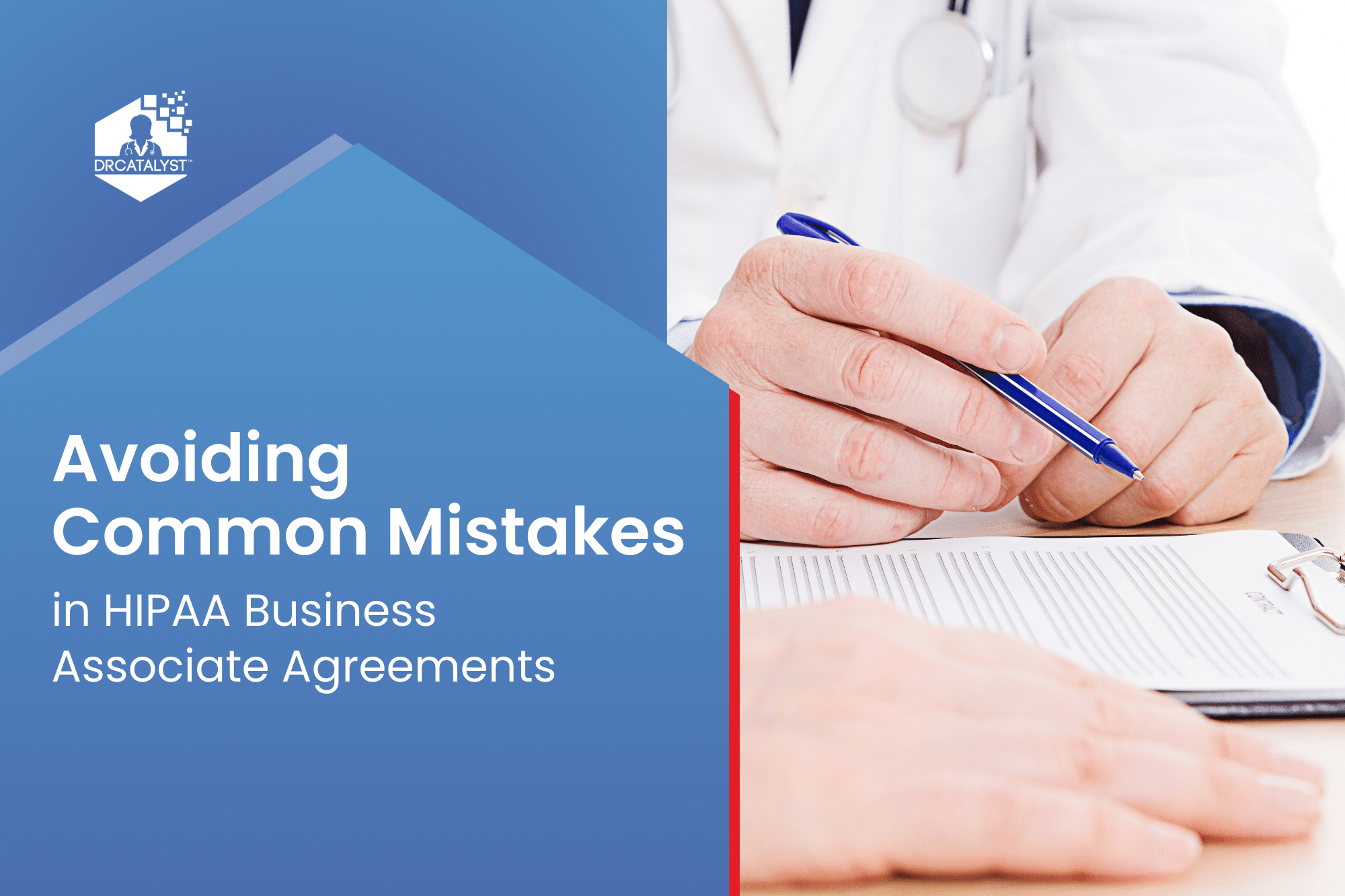
When it comes to compliance with HIPAA, there’s no room for shortcuts, especially with business associate agreements (BAAs).
As healthcare providers become more reliant on business associates to handle protected health information (PHI), they gain a valuable support system—and an increased risk of potential HIPAA violations. With more than 93 million healthcare records compromised in data breaches involving business associates, having a strong BAA in place is one of your best lines of defense.
In our last post, we discussed the fundamentals of HIPAA business associate agreements and why they matter. This time, we’re focusing on frequent mistakes even the most diligent organizations make when crafting a BAA. One slip-up could land you in hot water with hefty fines and penalties.
Secure Your Practice with HIPAA-Compliant Virtual Staffing
Avoiding these common pitfalls in healthcare BAA is crucial for keeping your HIPAA compliance airtight, especially when partnering with virtual staffing or medical billing companies. Here’s what you need to watch out for to keep your data and reputation safe.
Well-crafted HIPAA business associate agreements must clearly define the roles and responsibilities of your business partners, specifying what data access or services they will provide. Vague language in a BAA can lead to misunderstandings or compliance gaps, leaving your organization vulnerable. For instance, if the agreement does not clearly state which data the business associate can access, there’s a risk of accidental data exposure. Whether it’s a medical virtual staffing provider managing telehealth schedules or a billing company handling patient claims, you must ensure the BAA clearly outlines the responsibilities and the corresponding data access rights.
HIPAA business associate agreements must outline specific data-safeguarding obligations, such as access controls, encryption standards, and security protocols. One of the most common errors is omitting these details, which leaves room for business associates to apply inconsistent or insufficient protection measures. For services like virtual staffing and medical billing that handle a high volume of PHI, specifying safeguards ensures your data is consistently protected against unauthorized access, breaches, or cyberattacks. Don’t leave safeguarding measures to chance—outline precisely what is needed.
Including a breach notification clause is not just advisable; it’s a HIPAA compliance requirement. This clause should specify the timeline and process for notifying affected parties in the event of a breach. Some BAAs fail to include these critical details, which can delay response times and worsen the impact of a breach. For virtual staffing and billing services, this is especially important due to the increased risk of breaches associated with remote work and handling sensitive information digitally.
HIPAA regulations and business operations are continually evolving, making it essential to review and update BAAs regularly. Neglecting this can lead to compliance gaps, especially in sectors like medical billing, where rapid technological advancements and shifting business practices are the norm. When your business changes or new HIPAA requirements are rolled out, you must update your BAA accordingly. Consistent updates keep your agreements relevant and in line with current standards.

When business associates engage subcontractors, the subcontractors must also adhere to HIPAA requirements. A common mistake is failing to ensure subcontractors sign their own BAA and comply with the same standards. This oversight can create a compliance blind spot. When using virtual staffing services that rely on subcontracted workers, outlining specific obligations in the BAA to maintain end-to-end compliance is a must.
Signing a business associate agreement is just the starting point for HIPAA compliance—it’s not a one-and-done solution. You must actively monitor adherence to the agreement’s terms to protect your organization. Tap virtual staffing services or third-party partners that conduct internal audits or periodic assessments to verify if they maintain the agreed-upon safeguards. Regular reviews can help catch minor issues before they turn into major, costly breaches.
An outdated or overly generic BAA template can leave you vulnerable to compliance issues down the road. Since each business operates differently, the HIPAA business associate agreements must reflect their unique requirements. For example, virtual staffing companies encounter unique risks compared to traditional service providers, meaning their agreements must cover remote work issues and cloud-based data handling. Customize your business associate agreement for HIPAA to reflect the specifics of your operations and the current regulatory landscape.
Common mistakes with BAAs can expose you to potential HIPAA violations, but they don’t have to. Start by reviewing your business associate agreements with your legal team. Taking this critical step means better protection for your patients and your business. Whether partnering with medical billing companies or using virtual staffing, these precautions help create a safer and more resilient practice.
At DrCatalyst, we know that HIPAA compliance is non-negotiable. We uphold it by executing a BAA with every client, setting a higher standard over many other vendors.
Our team’s expertise goes beyond the basics. We’re certified by the Compliancy Group with the HIPAA Seal of Compliance! Trust us to keep your compliance needs fully covered so you can focus on your priorities without any worries.
With our fully HIPAA-compliant virtual staffing solutions, you can alleviate administrative burdens while meeting the highest standards for patient data protection. When you partner with DrCatalyst, you can focus on delivering quality patient care, knowing we safeguard your practice against compliance risks.
Partner with Certified Virtual Staffing Experts